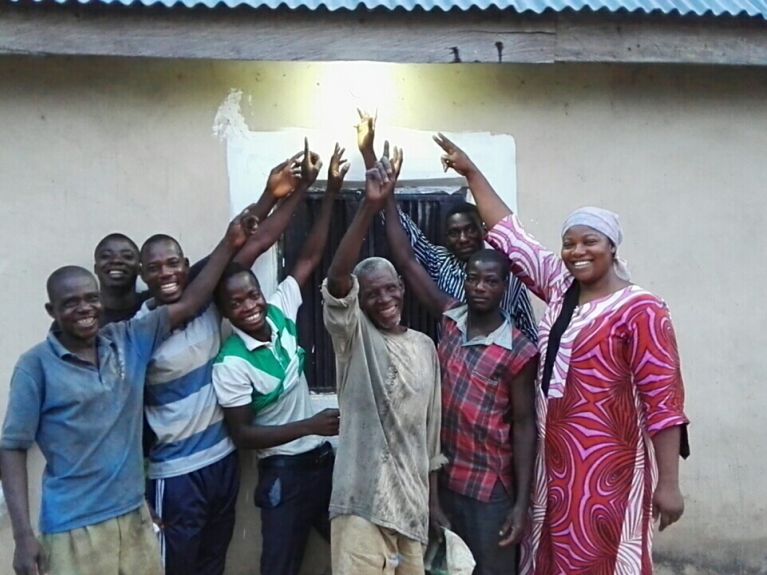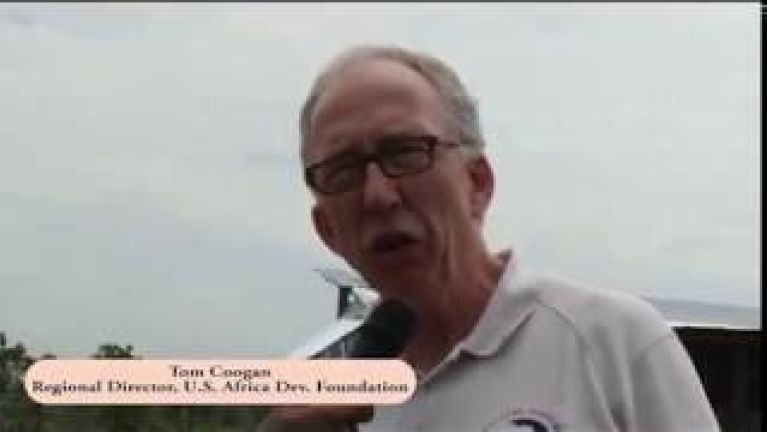Waste-2-Watt, Nigeria
The renewable energy project W2W is not just focused on energy generation but also on waste treatment, energy efficiency and clean cooking technology.

Dieses YouTube-Video kann in einem neuen Tab abgespielt werden
YouTube öffnenThird party content
We use YouTube to embed content that may collect data about your activity. Please review the details and accept the service to see this content.
Open consent formProject description:
Waste-2-Watt (W2W) is a renewable energy project generating 20kw of electricity and distributing via mini-grid to approximately 550 individiduals in the rural off-grid community of Rije, Abuja. W2W focuses on converting agricultural waste (poultry, livestock, crop waste) and communal waste (kitchen and human wastes) into electricity, cooking fuel using a bio-gas digester for off-grid farming communities. The W2W solution is unique as it’s not just focused on energy generation but also on waste treatment, energy efficiency and clean cooking technology which we believe is a necessary combination to achieve overall gains in reducing energy poverty in rural communities. The most notable achievements will be a access to electricity, a shift from the use of unclean cooking fuel (biomass) to clean cooking fuel using biogas stove which represent a reduction of about 35,000 kg CO2 per annum because of clean cooking technologies and 12 % reduction in energy expense. The environmental impact of landfilling large volumes of agricultural and other organic waste is extremely dangerous, decomposition of these waste leads to release of methane into the atmosphere. The use of waste in our operations mainly from animal waste reduces the GHG specifically methane.This solution is also with the added advantage of financing facility which reduces the burden of high upfront cost of these products to end users and we have trained 7 youths, ensuring capacity building on these technologies locally.
Goal and purpose of the project:
The first goal was to eradicate energy poverty and ensure electricity access in the community by utilizing the waste available. The second goal was to ensure the community benefits from the dividends of having access to electricity; i.e access to automated water system, enhanced security, extended study time for students, increased economic activities and opportunities and electricity to process and store agricultural produce to reduce post-harvest looses and the use of clean cooking solutions.
Motivation of the applicant / applicant team:
I grew up in an environment where rural communities are deprived access to energy services. Absence of electricity has denied these people economic growth, access to social services, increased vulnerability of communities by the threats of robbers under the cover of darkness and inability of the farmers to add value to their farm produce which leads to looses. This bitter scenario of energy poverty I witnessed motivated me to work on ensuring access to affordable and clean energy for all.
Use of prize money:
The prize money will be used for two activities; firstly to improve our logistics operations from waste collection to deposit on the site and secondly to conduct a thorough feasibility study of other off-grid agrarian communities I have profiled which will enable us prepare a market driven investor proposal to raise funding for our growth phase.
